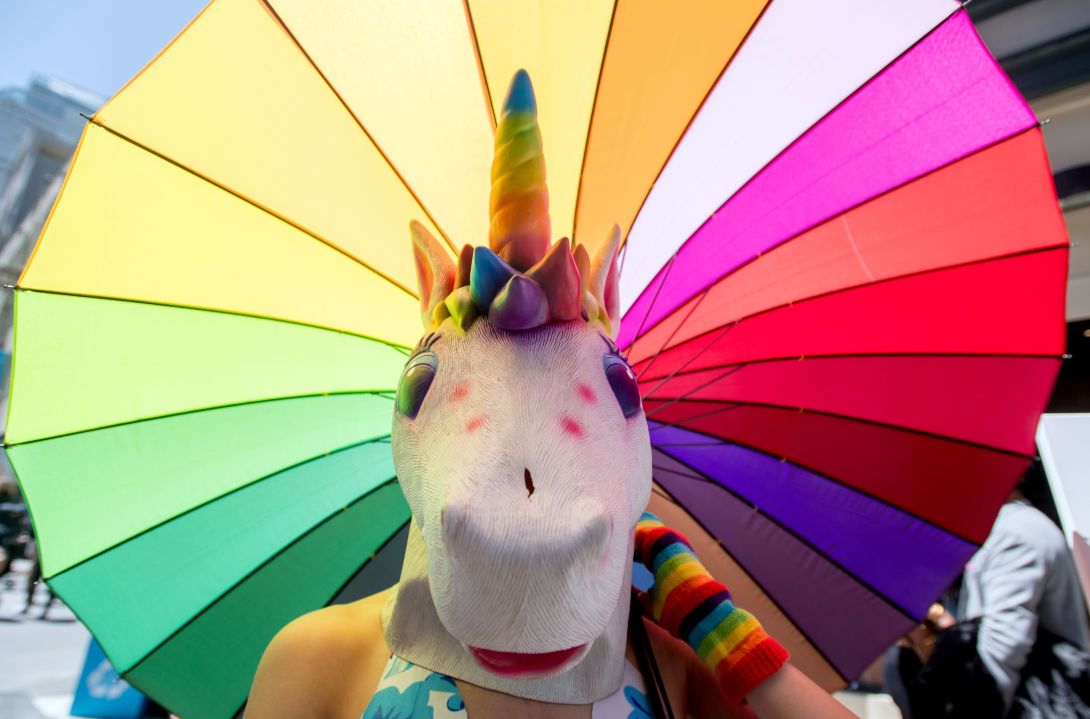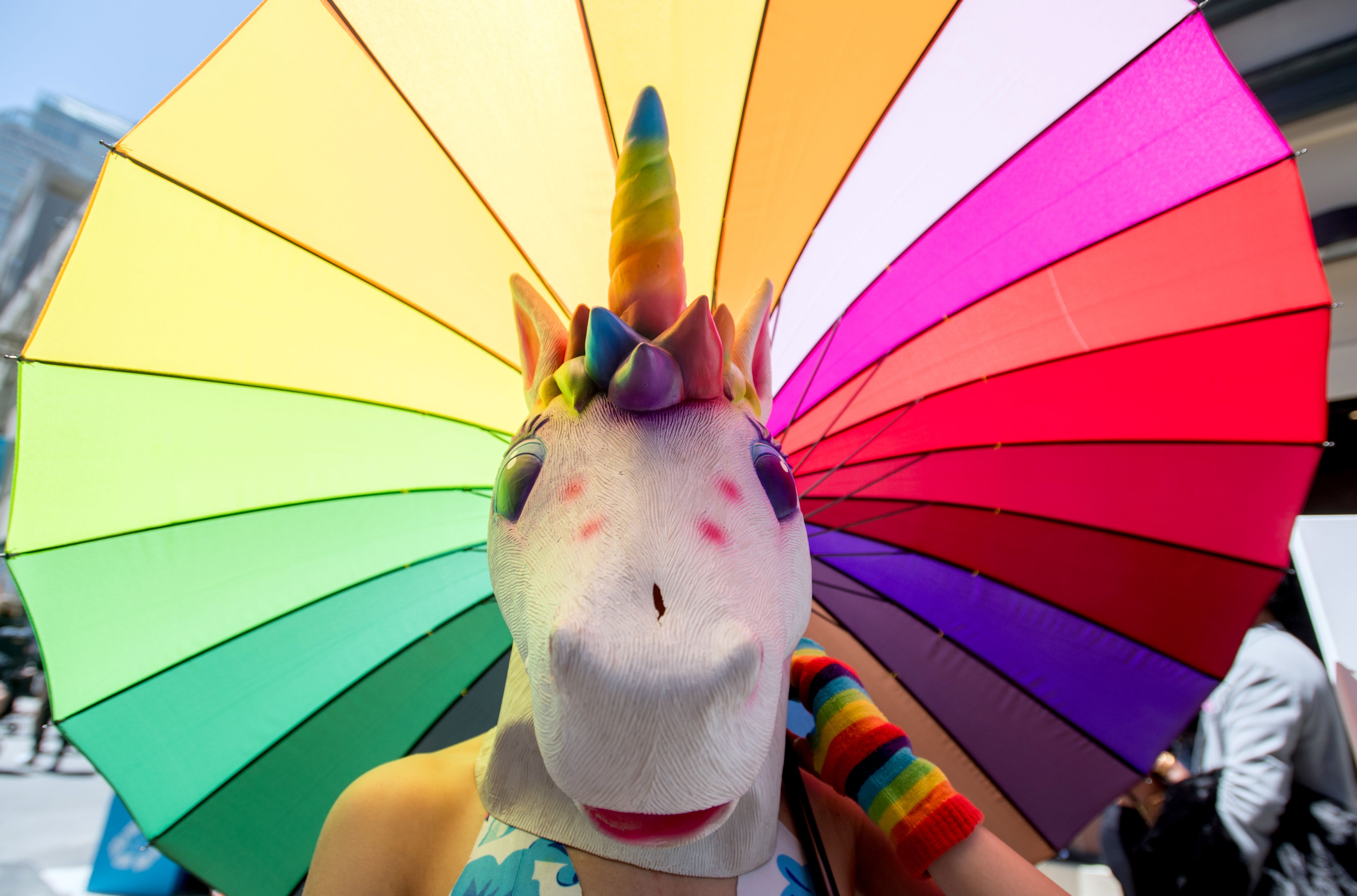I’ve been in Los Angeles for the last week, and it takes a special set of occurrences for someone to return to the UK from LA and think that Britain is getting a bit weird.
Yet we appear to have managed it. While I was away there was the row about Jacob Rees-Mogg expressing his adherence to the Catholic church’s views on social issues (over which he has no legislative control). Then there was a row about whether it is bigoted to see any differences between boys and girls, and whether children can or should ‘choose’ which gender they are. And there was also a row on morning television in which a man was invited on and shouted at by Piers Morgan because he doesn’t believe that homosexuality is an inbuilt trait but rather something that is learned behaviour (which can therefore be unlearned).
The problem about all these rows is not just that they are conducted in the worst possible fashion (though they undoubtedly are) but that they presume to lecture and berate everyone about issues which are not settled and about which healthy and wide public discussion could be useful.
Take the obscure Christian doctor who claims that homosexuals can be ‘cured’ by undergoing therapy at – among others – his own hands. Dr Michael Davidson claims that he himself was a bit gay in the past but now stands in the heterosexual ranks. Which is quite an interesting thing to hear about. But viewers of ‘Good Morning Britain’ didn’t get a chance to hear about it, because Piers Morgan simply used the opportunity to grandstand with such brilliant ripostes as ‘I say “shut up you old bigot”.’
The Guardian columnist Owen Jones thought even this wasn’t enough. According to Owen, even inviting Dr Davidson on morning TV was an abuse of a platform and even having him being shouted at by Piers Morgan for five minutes was ‘an abuse of free speech’.
Personally I think this is a shame. I sincerely doubt that Dr Davidson or anyone else can ‘cure’ people of being gay. There is little rationale for a young child ‘choosing’ to be gay just to make life in the teenage playground even easier. And I certainly share some irritation towards those people who suggest that being gay is a something that needs ‘curing’. Forcible ‘gay cure’ programmes are demonstrably destructive and dangerous. But it does not follow – as Morgan and the other presenter on TV seemed to think – that being gay is innate and genetically fixed at birth.
I can think of people who have been straight for most of their lives and have then decided that they are gay. And I can think of some people (admittedly fewer) who have been gay for a long time and then decided they aren’t any longer. It doesn’t seem obvious to me that human sexuality is a one-way street fixed at birth, and that being gay is the only direction of sexual travel in life. But if you doubt that or even (like me) would like to hear good arguments about it on platforms including the TV then it is clearly no longer possible. The consensus is in, decided not by science but by a shouty crowd.
The same crowd appear to be in the process of settling the question of whether there are any such things as boys and girls, and whether a boy should be allowed to grow up as a girl or a girl grow up as a boy. Also whether any child should be able to make such calls when their years are still in single digits. The moral crusade over all this found its latest flashpoint thanks to a Christian couple from the Isle of Wight called Nigel and Sally Rowe who have removed their six year old son from his Church of England school because another pupil wants to wear a dress and be accepted as transgender. The Rowes say that their son finds this ‘confusing’.
In response to this my colleague Isabel Hardman suggests that we need to be more understanding, recognise that children encounter lots of confusing things and that it is the job of parents to help their children deal with such things. The problem with this approach is that it presumes that it is not society itself which is confused about all this. Isabel writes
‘Why can’t a child change from boy to girl? Most children go through phases of wanting to change into a unicorn, and only drop the expectation that this could happen when reality intervenes. If a child changes gender, then that is reality, and like other slightly confusing aspects of reality, it’s down to a parent to stop this being too confusing to bear.’
Here, though, is the heart of the problem. I agree with Isabel that the explanations given in television interviews by the Rowes are slightly half-baked. I would imagine that is partly because most people are now afraid to go on television and give their views because they know that they are broadcasting to a nation busily ordering its morality according to transient mob outrage. But their own views are not nearly as half-baked as those of the society they are pushing back against.
If a six-year-old boy says that he wants to be a unicorn he is not allowed to go to school dressed as a unicorn. He will not be told by any figure in authority that if he wants to be a unicorn then of course he can be. He will not be allowed to take drugs that impede his development into being a man and later be allowed to go through expensive and invasive surgery to try to make him resemble a unicorn. And nobody but nobody will tell him that if he does all of these things in the correct order then he will not only be able to look like a unicorn but will be able to fly.
That is the problem with pretending that all discussions on these matters are settled. They are not. Personally, like a lot of people, I have deep questions about the whole business of Trans. While I think it clear that a very tiny proportion of people actually do feel that they are born in the wrong gender, and should of course be treated with courtesy, understanding and respect, I think it the greatest societal madness to say that any child who thinks they might be the opposite sex should be encouraged to go down an irreversible path, that this can be done easily and that anyone who says otherwise is a horrible old bigot.
True, if you are a very rich former sports star and reality television personality with access to the finest surgeons, make-up artists, dressers, photographers and re-touchers (thinking of no one in particular) then the unicorn transformation may be realistic. But you will still not be able to change your chromosomes. Nor will you be able to give birth to a child or various other things that women can ordinarily do. I sometimes wonder whether the ease with which we pretend people are able to change genders will not be viewed by our descendants as one of the greatest oddities of our age.
Anyway, the thing about all of this is that what the relatively small but outraged mob increasingly shrieks down and demands to no-platform are not just all opposing views, but all discussion about things we could do with discussing. I think we can, and should, have such discussions without dehumanising anybody. But some people clearly think otherwise. I wonder why the outrage is so vociferous, the calls for censorship so complete? Is it possible, perhaps, that some people are worried about the strength of their own case?








Comments